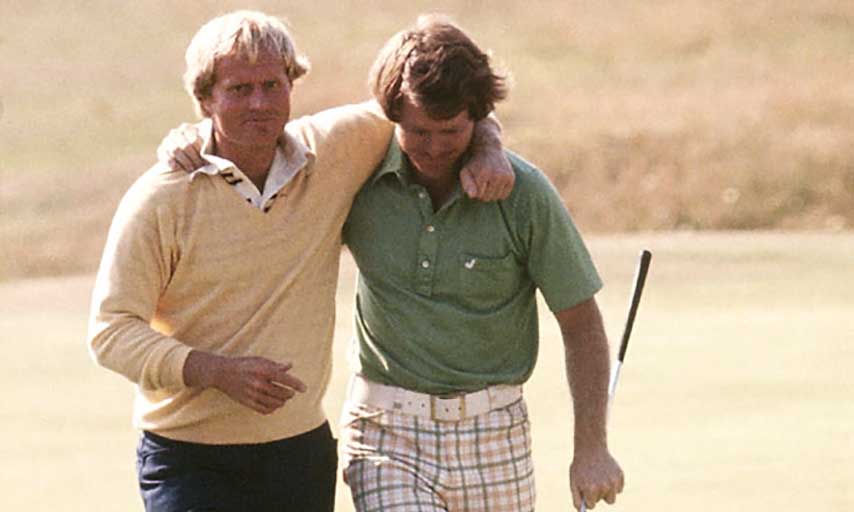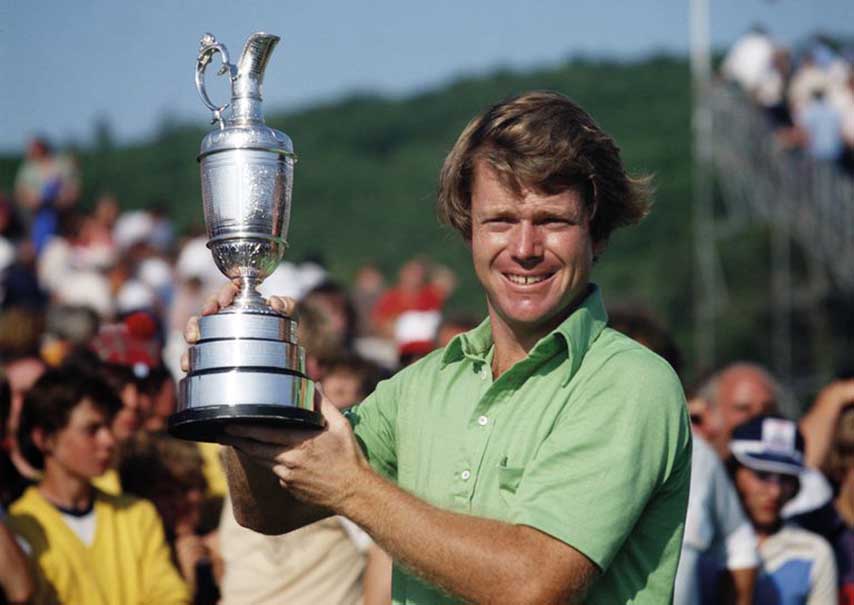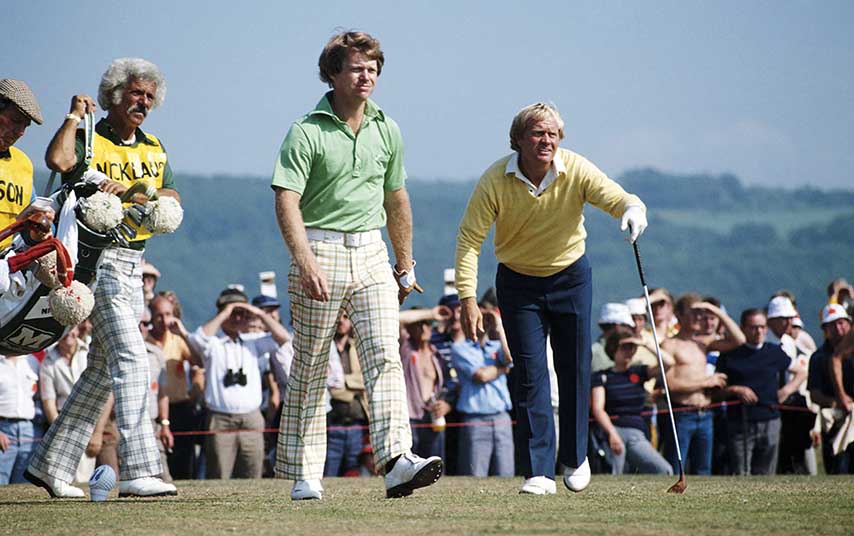It was one of the most memorable moments in international golf, one of the most exciting episodes in the magnificent history of major championships. On the afternoon of 9 July 1977, at Turnberry Scotland, the British Open was played under the sun between two of the greatest players in the game: Jack Nicklaus and Tom Watson. The former - at 37 years of age - had already accumulated 14 majors (the most recent, the 1975 US PGA Championship); while the Kansas star - then 27 - arrived at Turnberry three months after winning the US Masters by two shots over Nicklaus, for his second career Grand Slam after the 1975 British Open.
After the first two rounds, both were tied one shot off the lead and they were paired for the third day. They didn’t disappoint the ecstatic galleries who crowded the course, both carding 65 (five-under) for seven-under totals of 203. They led the championship with 18 holes remaining, three shots ahead of Ben Crenshaw and six better than the rest of the field.

On the final day, the Golden Bear soon took the lead with two birdies and was already three shots ahead of Watson on the fifth tee. However, Watson was not deterred and holed three birdies in the next four holes to level the match. On the ninth, Nicklaus slipped ahead thanks to a bogey by his rival, and on the 12th the Ohio star increased his lead after holing a seven-metre birdie. Watson returned the favour with two birdies on the 13th and 15th, the latter an incredible putt of 18 metres from off the green that touched the flag and entered the hole. The crowd roared. With three holes left, they were again tied, and their swords were raised for a final battle that would later become known as the “Duel to the Sun”.
The 16th was resolved with two pars, and on the 17th, a par-five of 450 metres. Nicklaus hit to the right of the green but chipped his third shot to one metre from the hole. Watson missed an eagle putt and settled for a birdie. Unexpectedly, the Golden Bear missed his short putt and ended up with a par: a one-shot advantage to his rival.
On the 18th, a par-four of 388 metres, Watson hit the fairway with his one-iron drive. Nicklaus was forced to take a risk, but his drive detoured to the right and the ball landed in a complicated area of rough. Watson’s second shot, with a seven-iron, landed 60 centimetres from the pin. It seemed that the battle was decided, but the Golden Bear again brought out his extraordinary talent and hit an amazing eight-iron to the front of the green 11 metres from the hole.
This time his putter was cooperative, and the ball dropped into the hole. A round of 66 without a single bogey. If Watson failed and did not hole his seventh birdie of the day, there would be an 18-hole play-off. Less than one metre separated him from victory. "While I was preparing for my putt," Watson said later, "the crowd was still rowdy. Then Jack raised his arms to calm people down."
The galleries became momentarily quiet as Watson made a practice swing and sank his putt for victory. They were still shouting with joy when Nicklaus put his arm around the champion's shoulder and walked with him to the scorer’s hut to hand in their cards.

After a final round of 65, Watson raised the famous claret jug for a second time. His 12-under 268 was eight strokes better than the previous best British Open total.
Finishing third was compatriot Hubert Green, that year’s US Open champion, who ended up 11 strokes adrift of the winner.
Nicklaus secured his third British Open victory the following year, after 1966 and 1970. Watson would add another five majors, while the Golden Bear eventually increased his tally by four, to total 18, the last one at Augusta in 1986. In their respective British Open balance sheets, Watson clearly bettered Nicklaus: five to three.
.
THINGS ABOUT...
The year of the Duel to the Sun, 1977, Watson had beaten Nicklaus four times, including the Masters at Augusta, where the Golden Bear finished second, two strokes behind the champion.
Nicklaus secured his first Grand Slam title in the 1996 British Open, and he would go on to win two more.
In the 2009 British Open, Watson, then 59, came to the 18th in the final round with a one-shot lead. A par would have been enough to win but his approach bounced off the front slope of the green and rolled backwards. He made bogey and in the play-off Stewart Cink won on the fourth extra hole.
Nicklaus won his first major (1962 US Open) at 22 years of age, and Watson won his first (1975 British Open) at 25. The Golden Bear recorded his last major (1986 Masters) at 46, and Watson his final Grand Slam title (1983 British Open) at 35.
Watson accumulated a total of 39 victories (including eight majors) during his PGA Tour career, while Nicklaus tallied 73, among them 18 majors.
The golf course remained closed during the two World Wars to be used as an air base. The clubhouse was used as a hospital to care for wounded soldiers.
The management of Turnberry Golf Club, now owned by US President Donald Trump, who bought it in 2014, canceled the sale of a popular soft drink in Scotland, because of the risk of staining carpets.
In 2003, the 18th hole on the Ailsa Course, "Ailsa Hame", was renamed "Duel in the Sun” as a tribute to the battle between Tom Watson and Jack Nicklaus in 1977. A sports bar in the resort also has the same name.




